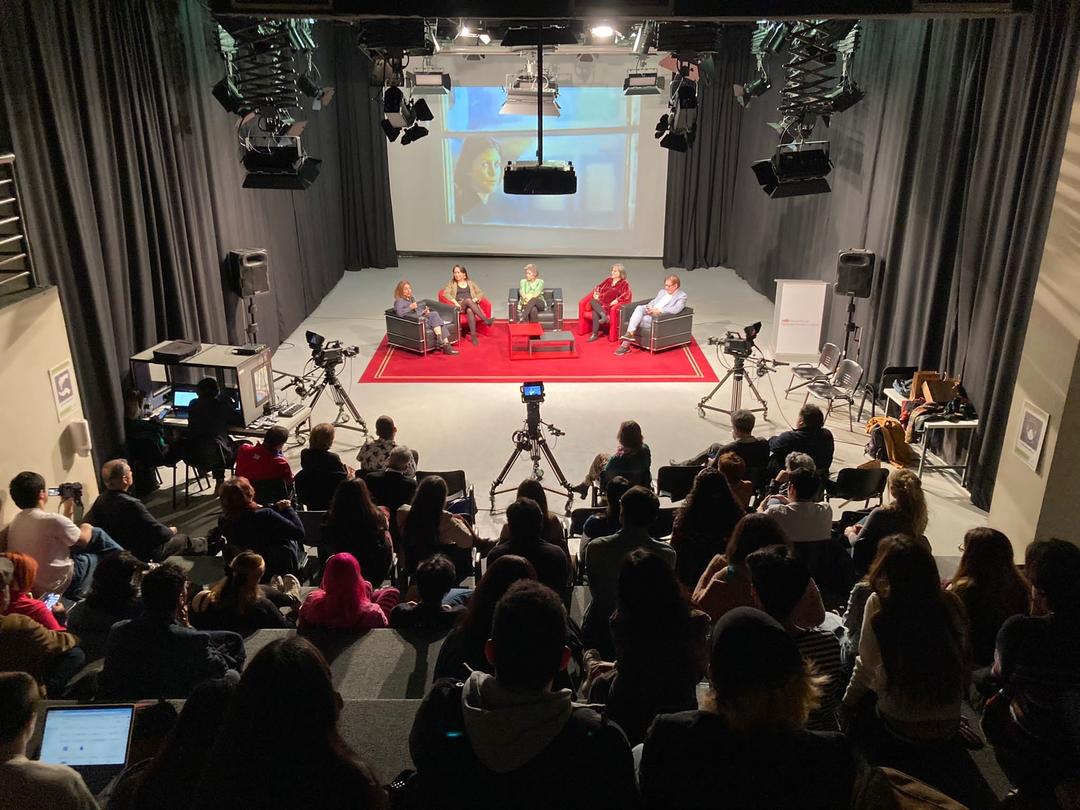A Global Seminar Explores Resistance to Authoritarianism in Chile — Through its Artists

Princeton University students enrolled in an immersive, six-week Global Seminar in Chile received more than an in-depth study of the country’s artistic and political movements over the last half-century. Many came away with a greater understanding of the United States’ role in global politics — and a new appreciation for the importance of actively maintaining democracy worldwide.
The seminar, “Images in Transition: Art and Politics in Chile’s Transition to Democracy,” centered on the relationship between politics and art in the South American nation since dictator Augusto Pinochet’s 1973 coup ousted President Salvador Allende.
“Our focus was the resistance by artists, writers and filmmakers during those years to torture, oppression, authoritarianism and censorship,” said Javier Guerrero, associate professor of Spanish and Portuguese and a scholar of Latin American studies, visual culture and sexuality. “We were mainly talking about the ’70s and ’80s, but at the same time, we were talking about the present — not only in Chile, but here in the United States and all over the world.”
In addition to classroom sessions and Spanish-language lessons at the Universidad Diego Portales in Santiago, Princeton students visited galleries, museums, archives and urban public spaces used by notable Chilean artists. They also took excursions to the coastal cities of Valparaíso, Viña del Mar, Ritoque and Isla Negra, and to the Atacama desert, the driest nonpolar desert on Earth — and the site where 26 men were executed by Pinochet’s “Caravan of Death” in 1973.
“It was truly a life-changing experience, not just talking about what we read but also witnessing it in person,” said Dana Serea ’26, who plans to major in English with a certificate in Spanish language and culture. As the child of parents who lived under Romanian dictator Nicolae Ceaușescu, she saw similarities between what they endured and what happened in Chile under Pinochet. “We must acknowledge the grim history that Chile encountered and raise awareness for future generations, so none of this could ever occur again.”
The Global Seminar’s curriculum included lessons and analyses on Chile’s history since the coup through multimedia art like films, photographs, novels and nonfiction works created in response to the Pinochet government’s systemic terror and oppression. His regime targeted artists, leftists, socialists and others opposed to the military dictatorship. Tens of thousands of people were jailed, tortured or “disappeared,” and the Chilean government acknowledges around 3,000 executions during Pinochet’s 17-year rule.
Featured speakers included public figures from Chile’s cultural and political spheres, including renowned actor Alfredo Castro — whom Guerrero likened to Chile’s Al Pacino — and Jorge Arrate, former minister of state under three Chilean presidents, including Allende. Contemporary artists including the feminist collective LasTesis, whose song against sexual violence, “Un Violador en Tu Camino” (A Rapist in Your Path), went viral in 2019, and feminist anthropologist Rita Segato also spoke to the group.
For Luke Carroll ’26, a student in the School of Public and International Affairs, the curriculum presented a rigorous study of history and politics through sociology and art. “People often disregard art and abstract thinking as irrelevant to politics, when what we were seeing was one of the purest and most effective forms of political communication,” he said. “Art played a big role in bringing democracy back in 1990 in Chile.”
This Global Seminar didn’t benefit only Princeton undergraduates. Students at the Universidad Diego Portales studied alongside their American counterparts, creating the opportunity for language and cultural exchange.
Tamara Maldonado, a student from Paraguay who is finishing a degree in creative literature at UDP, saw the Global Seminar as a chance to take an academic approach to her own family’s history. “My mother’s side is Chilean, an they left the country during the dictatorship because they were Communists. We didn’t talk about what happened,” she said. “Now that I’m an adult, I find it fascinating how differently they approach it here. They decide to remember everything and not forget, because forgetting is like committing a second form of violence.”
Learning together with Chilean undergraduates helped Princeton students develop a stronger understanding of their own country’s history and its role in world events — including the United States’ role in fomenting the coup. “They were very surprised to learn the connection between the United States and Chile and the influence of the Nixon administration on the coup d’état in the ’70s,” Guerrero said, referencing U.S. interventions to undermine Allende out of fear that other countries would want to emulate a successful socialist government. “Part of the Global Seminar is learning how the world works and how everything is interconnected.”
“It’s very important to talk about how fascism is taking over politics, not only in Chile,” said Guerrero, citing the rise in authoritarian movements around the globe. By learning about the struggles of the past and building connections with those still fighting oppression in the present, his students returned home with an expanded worldview — and a greater sense of how fragile freedom and equality can be. “We have to pay attention, because when democracy is in peril in one territory, it’s in peril everywhere.”
